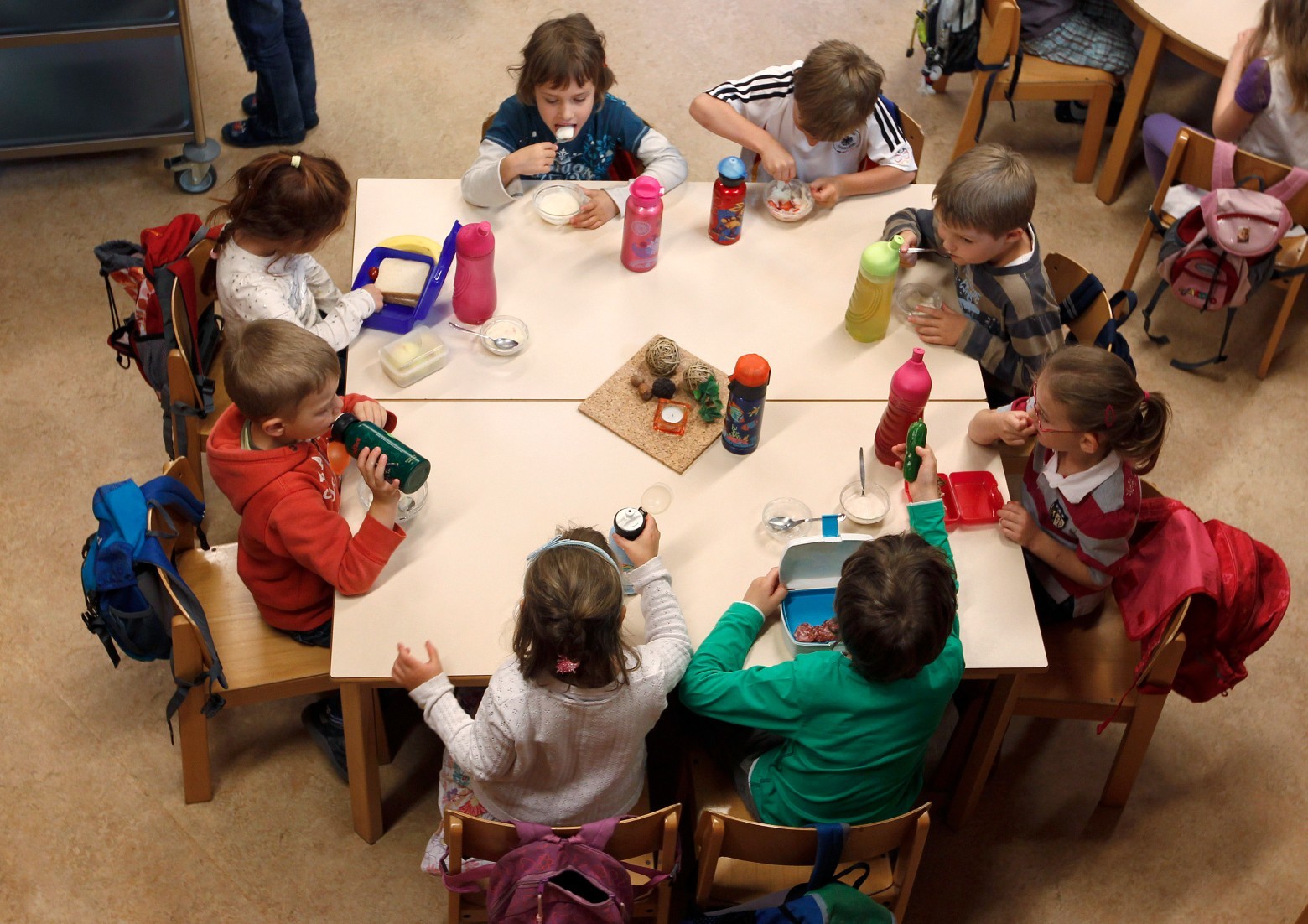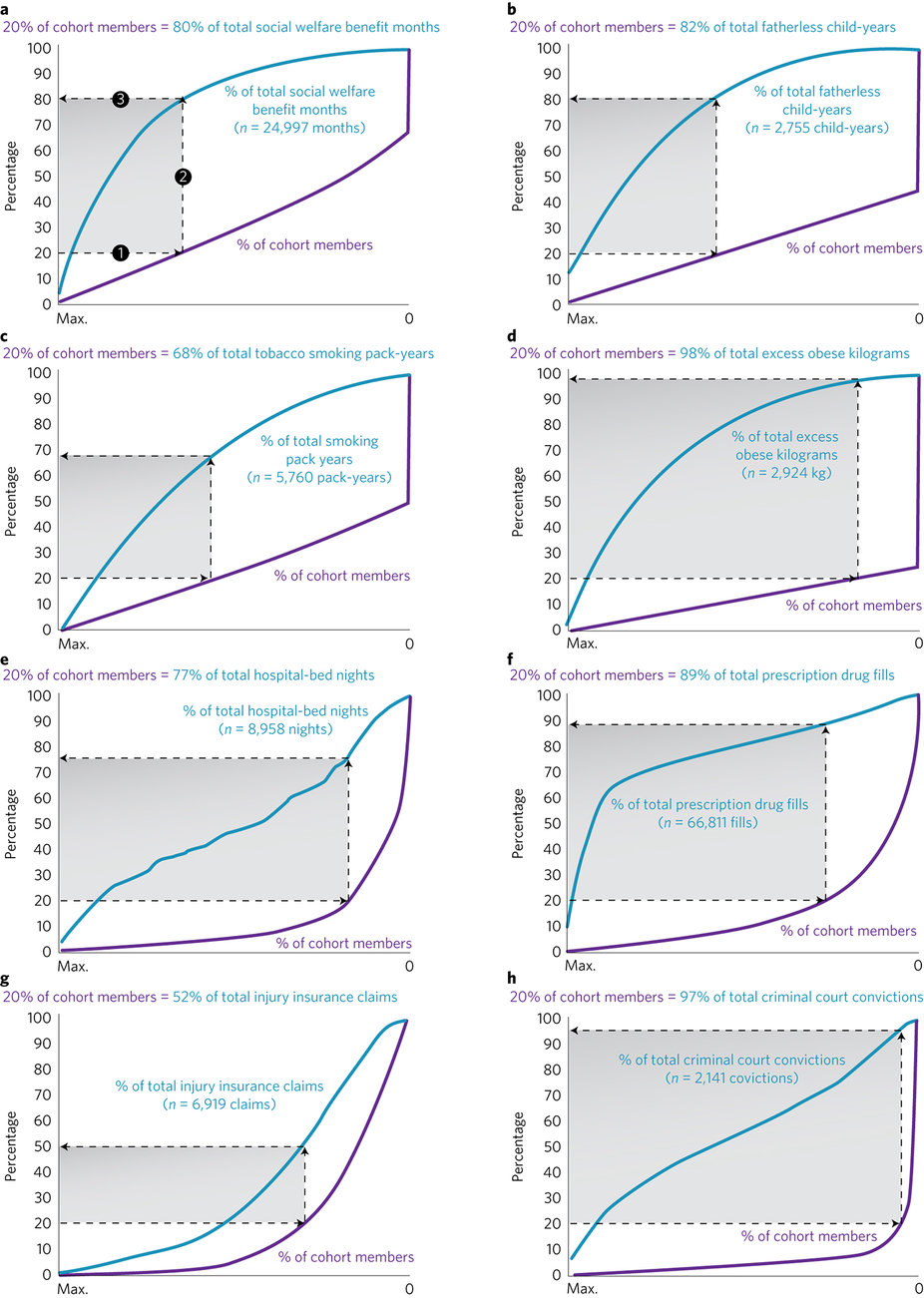The unhappy future of man is manifested at the age of three

The lack of mental development in childhood is a strong indicator of problems in adulthood. Photo: Reuters / Michaela Rehle
They say that fate does not exist, but each person is the master of his own happiness. Like, if you work hard, you will surely achieve success in your business. Unfortunately, numerous studies over and over again show that a person’s future strongly depends on his childhood abilities. For example, in the USA, the level of school grades and standard tests correlates well with future success in life . But the child's IQ has a much weaker effect on the future than conscientiousness, diligence, and self-discipline (that is, the main factors for obtaining good grades in the test). Smart children have a chance to succeed, that is, high income, only 1-2% higher than stupid ones.
As it turns out, among children it is possible to identify not only future scientists and academics, heads of major corporations and billionaires, but also future “losers” who will be unemployed, commit crimes or chronically ill. This can be seen from three years.
A 40-year long-term study of the life successes of people from infancy has shown that future losers can be recognized almost from the cradle. Key factors are the child's mental abilities, communication skills and behavioral tests.
')
The authors of the scientific work hope that their work will help correct the destinies of people, correcting their development from the cradle, and will not at all serve to “cull” children by external factors. They show that helping in the development of certain abilities in childhood really helps a person. Yes, and the whole society, because the reduction of crime and morbidity is beneficial for everyone, because it reduces the tax burden and increases the standard of living of all others. Therefore, politicians, in theory, are extremely interested in developing the abilities of young children - this is exactly what will make life in the country certainly better in the future. This is an ideal long-term investment in our future.
This long-term study lays the fundamental scientific basis for the thesis that children's skills determine the future of a person, his health, employment and economic success. As part of this work, scientists analyzed the existing 40-year-old dataset on the development of a generation of people born in the city of Denidin (New Zealand). The study involved 1037 people born in the years 1972-1973 (Dunedin Multidisciplinary Health and Development Study). Now these people are 42-44 years old, so certain conclusions can be made.
A 40-year dataset served as materials for various studies, but now the authors have studied it in a new way: using population segmentation. They managed to identify a specific segment (22% of the sample), which account for a significant part of the negative effects of the “losers”:
- injuries with insurance payments (36% of all insurance payments in the sample);
- overweight (40%);
- cigarette smoking (54%);
- receiving social benefits (66%);
- single-parent families (77%);
- obtaining pharmaceutical prescriptions (78%);
- criminal offenses (81% of the total).

Particularly revealing statistics on criminal offenses: 22% of children commit 81% of all crimes when they grow up. In general, this distribution is not surprising, because it corresponds to the Pareto distribution in probability theory (20% of children - 80% of crimes). The main thing is that scientists managed to isolate specific factors for these 20% of children.
These results are quite interesting. After all, they do not mean that the improvement of children's abilities will automatically lead to a decrease in unemployment, crime, etc. After all, if we pull the most lagging behind to the average level, then in the statistical sample another 20% lagging behind will appear, and so on to infinity. 20% lagging behind will always be. And it is quite possible that it will be their share of the majority of the unemployed and criminals in the future.
Just criminals and the unemployed will become more educated, capable and talented than before. But who said that they will be less?
In the end, these assumptions are indirectly confirmed by the scientists themselves. They divided different social groups into new subgroups. It was found that among the poorest there are the same 20% of the least talented children, which then account for 80% of crimes. And in the richest social group there are also those 20% of children, which then account for 80% of crimes. This group of “future criminals” is characterized by the same characteristics: lower mental abilities, compared with peers from their social group, lower cognitive and behavioral tests.
Scientists make a logical conclusion that we are not able to significantly improve the social situation of families with young children, but it is in our power to improve their mental development. Perhaps this will help.
Psychologists state different theories as to why the lower 20% of children become “the dregs of society” in the future. One theory says that this is related to school experience. Poor school performance and negative school experience prepare children for such a fate in the future - after graduation, they are ready to fight the system. “They skip school, graduate without training, cannot find work, and slip into the lower strata of society,” explains psychology and neurology professor Terrie Moffitt, lead author of the study.
The scientific work was published on December 12, 2016 in the journal Nature Human Behavior (doi: 10.1038 / s41562-016-0005).
Source: https://habr.com/ru/post/400273/
All Articles